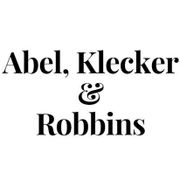
While contact lenses are known for their convenience, comfort, and minimal maintenance, many seniors assume that this type of vision correction is better suited to younger people. But, in reality, most older folks can wear contacts just as successfully as anyone else. Below, learn about how your vision changes as you age and the best contact options for seniors.
How Vision Changes With Age
After age 40, most people start to develop some degree of presbyopia. This is the clinical term for farsightedness caused by a loss of elasticity in the eye's lens, a normal part of the aging process. You'll likely have trouble focusing on objects up close.
Cataracts are extremely common, especially in senior populations. The World Health Organization estimates that 65.2 million people have them. A cataract is a clouding of the lens of the eye, and while this can sometimes be caused by injury or genetic disorders, it is most often the result of age.

Older folks are also at an increased risk of certain eye diseases, such as macular degeneration, dry eye, and glaucoma. And as you age, the structure of the eye changes, which can lead to sight issues like a loss of peripheral vision and a reduced ability to see colors.
The Types of Contact Lenses for Seniors
There is no single type of contact designed for seniors, so it's best to consult your eye doctor and follow their recommendations. With that said, the most popular type, among any age group, are soft contacts. They are made of safe plastics that allow for healthy amounts of oxygen to flow to the eye, resulting in a comfortable fit, long wear, and consistently strong vision. If you have dry eye, or just don't want to have to clean and store your lenses each day, soft daily disposables are a good idea.
Hard contacts are another option. They are made of a stiffer plastic, which gives them greater durability and a longer life span, but they tend to be less comfortable and can come out of place more easily. If you have presbyopia, multifocal lenses may be the right solution. With this option, one lens is for close-up vision, the other for distance. They take getting used to, but many seniors wear them with ease.
Those who experience frequent dry eye can get lenses designed especially for their needs. These contacts are better able to retain moisture, so you can wear them for long periods without them drying out.
Explore your contact lens options with the optometrists at Abel, Klecker & Robbins. For over 60 years, they have been serving the Lexington, KY, area. They provide comprehensive vision care services, including glasses and contacts. Call (859) 269-6921 to schedule an eye exam or visit them online to browse their services.
About the Business
Have a question? Ask the experts!
Send your question

